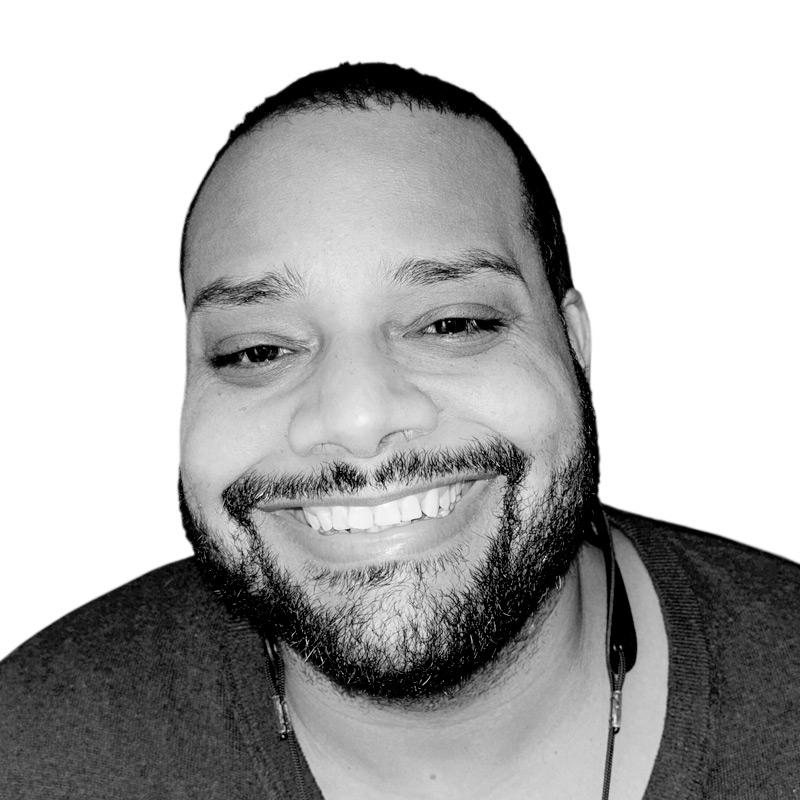The Real Blueprint
‘Reasonable Doubt’ turned rap into a corporate ladder — and then Jay Z climbed to the top
June 25 marks the 20th anniversary of Reasonable Doubt, Jay Z’s first album. To commemorate, we’re celebrating with Jay Z Day.
In 1999, the journalist Harry Allen, writing for Vibe, asked his magazine’s April cover star, Jay Z (who was styling his name as "Jay-Z" at the time), to determine "the ultimate good." Allen’s prompt was a strange one, especially considering the setting, a lounge at LaGuardia Airport, where Jay and his business partners Damon Dash and Kareem Burke were waiting for a flight to Miami to attend Super Bowl XXXIII. For Roc-A-Fella Records, times were good. Jay Z was 29, fresh off the success of "Hard Knock Life." Allen was 34, a senior expert within a musical genre that had nearly completed its domination of the American imagination. He used his few minutes with Jay to examine the competitive positioning of a rapper in the early stages of re-creating hip-hop in his image, and the personal ethics of a man who turned his drug-dealing past into the textbook for an MBA in rap.
What would you consider the ultimate good?
Jay Z answered Allen’s philosophical probe with a mission statement: "To create a comfortable position for me and everybody around me," he said. "Blacks, when we come up, we don’t normally inherit businesses. That’s not a common thing for us to have old money, like three or four generations, inheriting our parents’ businesses. That’s what we workin’ on right now. A legacy."
What started with Sylvia Robinson, Sugar Hill Records, and "Rapper’s Delight" in 1979 has indeed become big business for black entrepreneurs. (And, as it inevitably turns out, for white entrepreneurs.) When the genre’s profitability spiked in the mid-’90s, record label executives were keen to capitalize on hip-hop culture beyond just album and ticket sales. After Andre Harrell fired Sean Combs from Uptown Records in 1993, the disgruntled A&R founded Bad Boy Records and, in partnership with Arista, launched the career of the Notorious B.I.G. Then he expanded that core credibility and infrastructure to include a clothing brand, a liquor brand, and a TV deal with ABC, which aired the first two seasons of Making the Band. Within popular culture, and even within hip-hop itself, by the mid-’90s supremacy was no longer determined by who had the toughest crew or who was the best rapper out, but rather by who led the most powerful lifestyle conglomerate — in other words, by the ability to create a lasting, black enterprise. In his 2010 memoir, Decoded, Jay Z credits his formative ambition to Russell Simmons, the entrepreneur and Def Jam cofounder who "knew the culture’s power and was never shy about leveraging it and making sure that it was the people who were creating the culture who got rich off of it." When the founders of Roc-A-Fella were shopping for distribution partners in 1995, Dame Dash’s sticking point in contract negotiations was the condition that Roc-A-Fella would retain control of all of its artists’ master recordings, including Jay’s debut album, Reasonable Doubt.
Which matters: That album, and the circumstances that birthed it, are key to understanding Jay Z’s music, his success, and that striking mission statement to Harry Allen. In 1996, Jay Z told the hip-hop journalist Chairman Mao, also writing for Vibe, that he, Dash, and Burke had cofounded the label "out of frustration" with the music industry’s big league A&Rs, who rejected Jay’s vision and didn’t quite get his music. "We gonna build our own bridge," Jay told Vibe. So the three street executives created Roc-A-Fella Records in 1996, partnering with Freeze and Priority Records to release Jay’s debut. That was step one of Jay’s master plan, one that has, to date, yielded a successful streetwear brand, a Def Jam presidency, the unceremonious dissolution of Roc-A-Fella Records, a Samsung sellout, the launch of a sports management company, the acquisition and relaunch of a streaming music service, and, overall, a Forbes-estimated net worth of $610 million. "We just used this music to get our foot in the door," Jay told Vibe in 2000. "We gonna go into films, fashion, everything." It was all born of a master plan.

The year is 1996. It’s June, and already, the year’s biggest breakout hip-hop album is The Score, which the Fugees released in February. The most anticipated rap album of the summer is Nas’s sophomore project, It Was Written, backed and distributed by Columbia Records. At this point, Jay Z is notable mostly for his collaborations with Foxy Brown, who’d just laced Jay with a verse on "Ain’t No Nigga," the successful B-side to "Dead Presidents" and first single from Def Jam’s star-studded Nutty Professor soundtrack.
Jay Z’s work with Foxy Brown was a careful cauterization. Previously, Jay had been a much quicker rapper, flashy in his proficiency and obviously inspired by the technique of guys like Treach, Big L, and his earliest mentors, Big Daddy Kane and Jaz-O. On the demo tapes that he recorded in ’93-’94, Jay Z was funky. That style is mostly absent from Reasonable Doubt, an album defined by its author’s slick materialism. By 1995, Jay Z had outgrown his old tongue-twister flow, and he’d scrapped the novelty song concepts that he’d recorded under contract with Payday Records. Much to the delight of "Biggs" Burke, who preferred to hear Jay Z rapping about money, the rapper crafted Reasonable Doubt as the lingo of interstate sinners, Cristal sippers, and breadwinners.
The album yielded four singles. The first, "Dead Presidents," and the third, "Can’t Knock the Hustle," amount to a come-up in the spirit of the money-laundering montage from Brian De Palma’s Scarface. "I’m leaning on any nigga intervening with the sound of my money machine, and / My cup runneth over with hundreds," he raps on "Can’t Knock the Hustle." Unlike Ready to Die, in which the Notorious B.I.G. drew clear distinctions between low life and high life, Reasonable Doubt is a hustle in flux. Jay Z laced the album with references to the fictional Corleone family and the real-life John Gotti, a reverence that informs his vision of black wealth: illegitimately earned but legitimately secured, capitalized, and then passed down the lineage. In this grand scheme that he’s designed, there’s little difference between blow money and show money, between street business and artistic pursuit; on "Can’t Knock the Hustle," the album’s first track, Jay Z renders the distinction artfully vague. On "Regrets," the album’s closer, he configures the ethics of ascent making them applicable to either context, with disclaimers for his potential disciples: "On the rise to the top, many drop; don’t forget / In order to survive, gotta learn to live with regrets."
In 2003, The Black Album was Jay Z’s grand closing. "Hard Knock Life" had been his grand opening to the American mainstream in ’98. But Reasonable Doubt, that was Jay Z’s blueprint. With its little luxuries that somehow amount to predictions of tremendous success, the album is a rich text — a font of premature wisdom that panned out rather well for its author, and a user’s manual for rappers as entrepreneurs. For better or worse: "There was maybe a time when people in hip-hop made music only because they loved to make music," Jay Z writes in Decoded. "A lot of people came to hip-hop like that not out of a pure love of music, but as a legit hustle, another path out of the hood." Hip-hop was the hustle, and it still is.

As early as 1997, Jay Z found his earliest mark for a commercial rivalry: Ma$e, the jiggy prince who succeeded the late Notorious B.I.G. as the star of Bad Boy Records. While Jay had worked with Puffy and his Hitmen to produce much of his sophomore album, In My Lifetime, Vol. 1, released in November 1997, a cold war developed between the two rappers. Ma$e says they were fighting over a girl. Very much unlike the genre’s earlier rivalries, the sneak disses that Jay and Ma$e traded on 112’s "Imaginary Player," "Love Me," and "Ride or Die" in ’97-’98 were the materialistic concerns laid out on Reasonable Doubt. They were basically arguing about wristwatch quality and publishing splits. Jay would rehash the latter measure of success in his nasty spat with Nas; hip-hop, generally, would come to obsess over such commercial minutiae following the rise of 50 Cent. The Queens native adopted Jay’s corporatist confidence in the extreme in his music and interviews, pushing a wonky obsession with first-week album sales, Billboard chart success, and extracurricular stock investments. His 2002 debut album, Get Rich or Die Tryin’, sold 12 million copies the year of its release.
Despite these big commercial themes that we can trace back to Reasonable Doubt, Jay Z’s impact can seem slight in comparison to that of his protégé, Kanye West. Without Kanye’s stylistic and emotional innovations, there is no middle-class hip-hop insurgency; there is no eradication of the distinction between rapping and singing; there is no Drake. Yet Drake — the übermillennial — is quick to admit that he’s working from Jay Z’s playbook, down to the blue-chip partnerships, diversified entertainment ventures, postregional politicking, and mass-market appeals that don’t totally strain his credibility within hip-hop culture. Effectively, Drake has gentrified "the hustle," severing the posture and lingo from its criminal element. It’s tempting to blame Drake, or Kanye, or millennials en masse, for this softening of the genre, until you’re forced to concede that such gentrification was the founding purpose of Roc-A-Fella Records: "If we can get the commercial people to understand what he’s talking about — the cats that don’t go out in the streets, that just go to school, go home, and watch MTV. If we can get them to hear Jay, then that’ll bring us where we need to be," Dame Dash told Vibe in 2000.
Twenty years after the release of Reasonable Doubt, it’s easy sport to clown Jay Z. At 46, he’s a boardroom figurehead who, like most successful hip-hop veterans, can’t or won’t flow quite like he used to. When he does rap, he is either (a) minting a bland Top 40 hit, (b) chasing a wave just as it crashes, or (c) gloating about hot technology stocks. To release 2013’s Magna Carta…Holy Grail, he partnered with Samsung in an exceedingly convoluted manner that served the multibillion-dollar corporation much better than it served any Jay Z fans who bought its product. Since then, it’s been difficult to regard Jay Z’s late musicianship as anything but the obligatory capitalization of his remaining goodwill. But then, with Jay Z, it’s always been difficult to discern where, exactly, the art ends and the hustle commences. "Rap was the real hustle for me," Jay told Chairman Mao in ’96. "I’m tellin’ all the hustlers, ‘Don’t knock my hustle. Let me do this rap thing. That’s my way out. Just let me go.’"
They say you dress for the job that you want, right? Well, on June 19, 1996, a Wednesday, Roc-A-Fella and Priority Records cohosted an album-release party for Reasonable Doubt at the old Palladium nightclub in Union Square, with DJ Funkmaster Flex on the ones and twos. In gold italicized caps, the invitation listed a dress code: "PROPER ATTIRE A MUST NO JEANS OR SNEAKERS." To realize his mission statement, Jay Z required a measure of sophistication. So in 1996, the rapper debuted in proper attire. As always, he meant business.

